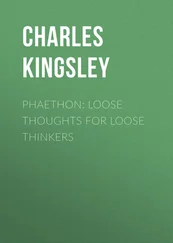Petina Gappah - An Elegy for Easterly
Здесь есть возможность читать онлайн «Petina Gappah - An Elegy for Easterly» весь текст электронной книги совершенно бесплатно (целиком полную версию без сокращений). В некоторых случаях можно слушать аудио, скачать через торрент в формате fb2 и присутствует краткое содержание. Год выпуска: 2009, Издательство: Faber & Faber, Жанр: Современная проза, на английском языке. Описание произведения, (предисловие) а так же отзывы посетителей доступны на портале библиотеки ЛибКат.
- Название:An Elegy for Easterly
- Автор:
- Издательство:Faber & Faber
- Жанр:
- Год:2009
- ISBN:нет данных
- Рейтинг книги:4 / 5. Голосов: 1
-
Избранное:Добавить в избранное
- Отзывы:
-
Ваша оценка:
- 80
- 1
- 2
- 3
- 4
- 5
An Elegy for Easterly: краткое содержание, описание и аннотация
Предлагаем к чтению аннотацию, описание, краткое содержание или предисловие (зависит от того, что написал сам автор книги «An Elegy for Easterly»). Если вы не нашли необходимую информацию о книге — напишите в комментариях, мы постараемся отыскать её.
An Elegy for Easterly — читать онлайн бесплатно полную книгу (весь текст) целиком
Ниже представлен текст книги, разбитый по страницам. Система сохранения места последней прочитанной страницы, позволяет с удобством читать онлайн бесплатно книгу «An Elegy for Easterly», без необходимости каждый раз заново искать на чём Вы остановились. Поставьте закладку, и сможете в любой момент перейти на страницу, на которой закончили чтение.
Интервал:
Закладка:

The trip to Amsterdam is his first ever trip out of Geneva. His only travels are when he goes from home in Petit Saconnex to the embassy in Chambesy, or drives up the gentle incline of the United Nations complex to attend meetings. On Saturdays, he drives his wife across the French border to shop at the Champion hypermarket. On Sundays, they drive to church. Thus he is not so well flown that he is entirely immune to the thrill of taking off from the ground to be enveloped in the clouds.
The last time that he was on an aeroplane was on his way to Geneva from Harare where his brothers saw him off at the airport. He has three brothers, one of whom lives in his old house in Waterfalls in Harare. When he calls his brother to check up on him, his family and the house, his sister-in-law hijacks the conversation with a repetitive litany of woe. Her talk is of power cuts, water cuts and rising bread prices. ‘Not like you in Geneva,’ she says. ‘ Vagoni muri ku Switzer.’
He tries to inject his own miseries into the conversation. ‘Can you believe we live in a flat, an apartment, they call it here,’ he says, too loudly, too vehemently. ‘Just a flat, heh ? A flat, just like single people.’ Feeling guilty for such a petty complaint. Knowing that, at least, he has three square meals a day. And electricity that allows him access to the Internet.
It is the grace of God that allowed him to escape the power cuts, the water cuts, the rising bread prices. He is not a career diplomat. God picked him out of the passport office at Makombe Building in Harare, thrusting him out of the way of approaching penury, just in time to enable his children to go to universities in Canada and England. He reads the newspapers that are flown in every month from Harare. He is the least important member of staff at the embassy, after the secretaries and driver, so he gets them last. The secretaries and driver are local recruits; they do not care about the news from a place they will never call home. The fall in the Zimdollar does not see a corresponding rise in their blood pressure. So the newspapers end up piled up in his office.
Every editorial wages war against inflation. Government ministers treat it like it is something outside of themselves and their policies; they wage war on it, they proclaim it the public enemy number one, they launch offensives on different fronts. Every week, unnamed economists issue sunny predictions on the turnaround of the economy.
Inflation will go down.
From twenty-five million and five hundred thousand per cent.
Any time now.
Any time soon.
The President glowers from every front page.

Like sex shops and pregnant women baring their stomachs in public in the summer, the Internet is a Geneva discovery. He knew of it, of course, but it did not feature much among his generation of civil servants. At the passport office in Harare where he was Head of the Department, everything was handwritten. And even here in Geneva, he does not use the computer at work. All typing is done by the secretary. He does not need the Internet for his work.
Then again, there is very little work.
Geneva is not London, or Johannesburg or Gaborone or Dallas, Texas, where there are hordes of Zimbabweans losing themselves or their passports, dying and getting arrested. There is not enough consular work to do, and even if there were, he is only a mailbox, an intermediary.
‘I will send your papers to Harare,’ he says to a woman who wants a passport for a newly born Zimbabwean. ‘It will take up to eight months, in fact, it is faster if you go to Harare and apply from there.’
‘So what are you here for?’ she asks.
‘It is faster in Harare,’ he repeats.
She leaves without saying goodbye.
‘In Zimbabwe, out of Zimbabwe, civil servants are all the same,’ she says.

He has learned the hard way that a first-world lifestyle demands a first-world salary. His monthly salary of six thousand two hundred francs a month would be adequate if only it were paid on time. After paying the rent, which is exactly a third of his salary, and paying the bills, and sending money back home, and by living on a diet of Champion value food, he and his wife save enough to put the children through university. Robert is finishing the third year, and Susan only just started.
He has recently been promoted from Full-Time Consular Officer to Part Consular Officer and Delegate. On seeing him wade through the piled-up newspapers, his Ambassador said to him, ‘Attend meetings at WIPO. And take in ITU and OMM if Chinyanga is busy.’
He now spends his days at meeting after meeting at which people talk of compulsory licensing and layout designs and topographies of integrated circuits. They talk of possible amendments to Article 6 quinquies of the Paris Convention. They talk of the Berne Convention and the Lisbon Convention and trade-related aspects of intellectual property rights. They laugh at jokes that he has no hope of ever understanding.
Other African delegates peel away the veneer of diplomacy on learning his nationality. They address him with an affectionate familiarity. ‘You Zimbabweans,’ says the Kenyan delegate. ‘You want to drive out muzungu, heh ?’ The Kenyan delegate laughs, and the Zambian and Tanzanian delegates join in.
‘You Zimbabweans,’ echoes the Ethiopian delegate. ‘When are you getting rid of your President? And our Mengistu, there in Harare with him?’
He develops a laugh for encounters such as these.
He learns to fall asleep with his eyes open.

On the flight to Amsterdam, he dreams of a new geyser for their house in Harare. The last time he called home, his brother’s wife said the old geyser is giving problems. He must remember to ask his brother to call Tregers’ for a quotation, he thinks. Then he remembers that with a million euros, they can buy a new house, houses , for him and his brothers. And each of their children. And their children’s children.
He works out how much a million euros is in Zimbabwe dollars. Each euro is two million dollars, on the parallel market, of course. 2,000,000,000,000 Zimbabwe dollars. His mind cannot expand enough to take this in.
Twelve zeroes make a billion, according to the United Kingdom system of counting. Twelve zeroes make a trillion, going by the United States version. Two billion or two trillion. One-fifth of Zimbabwe’s last annual budget. A lot of money, in any country. In a flood of thanksgiving, he plans all the things he will buy for his Lord’s representative on earth, their pastor in Harare.
A new cellphone, for sure.
A stove and a fridge.
A suit for the pastor.
An outfit (with a hat) for the pastor’s wife.
Toys and clothes for their children.
In his mind he sees the pastor’s children on his farewell visit, peering at the black-and-white cartoon images hissing from their fourth-hand television.
‘I will buy them a new television,’ he vows. ‘One with a flat screen.’

The grimy façade of the building that houses the European Bank of Luxembourg gives him pause. When he sees the broken elevator, the ten-franc ham sandwich that he ate on the flight moves uneasily in his stomach. He walks up the stairs to the second floor. A door with the letters EBL in black flourishes on a gold plaque gives him some reassurance. The door looks serious, solid. Inside, he finds that the offices are not as grimy as the outside indicated. The ham sandwich settles in his innards.
Читать дальшеИнтервал:
Закладка:
Похожие книги на «An Elegy for Easterly»
Представляем Вашему вниманию похожие книги на «An Elegy for Easterly» списком для выбора. Мы отобрали схожую по названию и смыслу литературу в надежде предоставить читателям больше вариантов отыскать новые, интересные, ещё непрочитанные произведения.
Обсуждение, отзывы о книге «An Elegy for Easterly» и просто собственные мнения читателей. Оставьте ваши комментарии, напишите, что Вы думаете о произведении, его смысле или главных героях. Укажите что конкретно понравилось, а что нет, и почему Вы так считаете.












